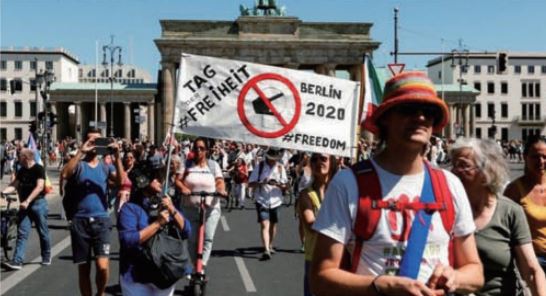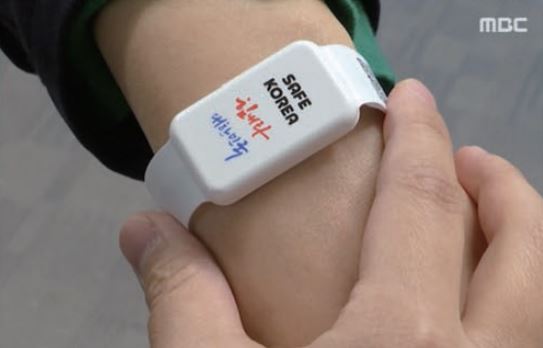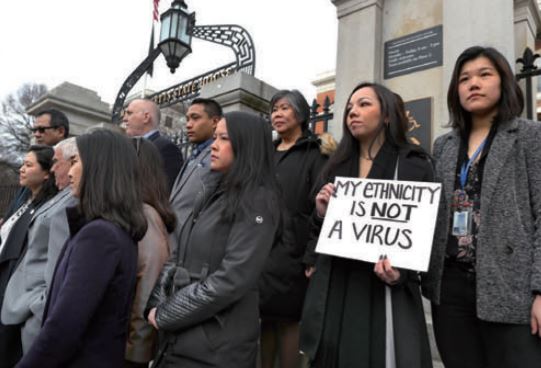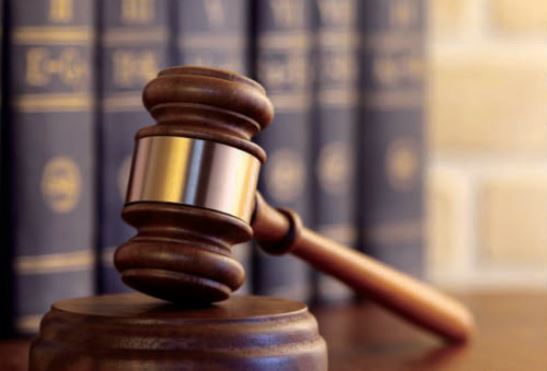“The COVID-19 pandemic is a public health emergency - but it is far more. It is an economic crisis. A social crisis. And a human crisis that is fast becoming a human rights crisis… Human rights cannot be an afterthought in times of crisis,” said António Guterres, the ninth Secretary-General of the United Nations, at the opening of the forty-third regular session of the Human Rights Council. There has been an ongoing debate about whether human rights can coexist with the pandemic. Regarding this, the Sungkyun Times (SKT) will now look at human rights and public health emergencies, analyze human rights violations during the pandemic, and suggest ways to improve conditions.
І. Pandemic Has Become the New Normal
Human Rights and the State
Human rights are inherent rights that every human being should possess as they exist, regardless of individual circumstances, characteristics, or statuses. The rights range from the right to life to rights to food, work, education, and liberty. The Universal Declaration of Human Rights (UDHR), adopted by the United Nations General Assembly in 1948, provides the building blocks of all international human rights laws. Its 30 articles set out fundamental human rights and ways to guarantee them. All nations have ratified the 30 articles of the UDHR, thereby having obligations and duties to follow their instructions. According to these, states must “respect,” “protect,” and “fulfill” human rights. The obligation to respect can be achieved by refraining from making interferences or curtailments of fundamental human rights, and the duty to protect means guarding individuals against human rights abuses. Then the commitment to fulfill requires states to take positive measures to facilitate the full enjoyment of human rights. International human rights laws also recognize that restrictions on some rights can be justified, based on the rule of law, in the context of war or other public emergencies which “threaten the life of the nation.” Still, under those specific circumstances, states must dedicate their best efforts to guarantee human rights.

Pandemic and the Public Health Emergency
Meanwhile, the Coronavirus Disease-19 (COVID-19) outbreak has complicated the tricky path between nations’ management of the state and individuals’ enjoyment of fundamental rights. Pointing to the rapid elevation of the cases, the World Health Organization (WHO) declared COVID-19 a pandemic on March 11th, 2020. Subsequently, multiple countries declared a public health emergency within their territories. Extraordinary times demand extraordinary measures; therefore, under the situation presented by COVID-19, governments needed to take exceptional actions to protect the health and wellbeing of the public, even if restrictions on human rights are required. Regarding these, many people have spoken up and taken part in a protest worldwide. On August 1st, 2020, about 20,000 people attended a protest against the coronavirus restrictions in the German capital Berlin. The BBC broadcasted that “Demonstrators said measures including the wearing of facemasks violated their rights and freedoms… Organizers had declared it a ‘day of freedom’ from months of coronavirus restrictions.” Experts mentioned that even nations perceived to advance in discussing human rights, including Western democracies, are no exceptions to this dilemma.

Ⅱ. Human Rights Violations During the Pandemic
Threat to Freedom
The South Korean Constitution enshrines several rights to freedom, including freedom of residence and the right to move at will, as fundamental human rights. Under the Constitution, citizens can require their government to protect their freedom in any circumstance, and the government must not restrict the freedoms without a particular context or a solid legal basis. However, under the COVID-19 situation, South Korea has undergone multiple measures curtailing the freedoms of the population, as if there was a tacit agreement on the matter. The 14 days of self-isolation are an example of this. It is currently mandatory to self-isolate for 14 days in South Korea for those who arrive in the country and those who come into close contact with COVID-19 confirmed patients. Those who leave the designated area without permission can be imprisoned for up to one year or fined up to 10 million won. Besides this, South Korea also requires self-isolators to wear electronic wristbands called a “safe band,” attempting to keep them on a “short leash.” Looking superficially, it seems to follow a simple gut logic - to contain the spread of the virus better. However, self-isolation is a severe human rights violation, almost identical to custody. It does not only restrict the freedom of movement, but it also takes away other rights that require the freedom of movement as a precondition, including rights to work, protest, or education.

Invasion of Privacy
The right to privacy is another fundamental right that is explicitly spelled out in the South Korean Constitution. The Personal Information Protection Commission of South Korea explained that the purpose of the Personal Information Protection Act is “to prescribe how personal data is processed to protect the rights and interests of all citizens and further realize the dignity and value of each individual.” The Act aims to prevent government officials from unnecessarily collecting, using, or disclosing citizens’ personal data in an unauthorized way. However, this law seems to be non-existent in times of the global pandemic. Pointing to the speed of tracking down the close contacts of people who have been infected with COVID-19, South Korean government officials had looked through citizens’ personal data, ranging from credit card history to closed-circuit television recordings, without permission. The situation has improved since the adoption of a QR code-based tracing system last July. Individuals are currently required to voluntarily provide their personal data by scanning their smartphone QR codes before entering any mall, restaurant, or bar. Still, it is criticized that data processing is more compulsory rather than voluntary, for those who wish to visit these places must scan their QR codes.
Issues of Stigma and Discrimination
In times of pandemics, some people tend to take a shortcut in their minds to better explain the chaotic circumstances by finding particular targets to blame. Social stigma is an example of this. According to the WHO, social stigma amid the pandemic is “the negative association between a person or group of people who share certain characteristics and a specific disease.” It leads people of certain characteristics to be “labeled, stereotyped, discriminated against, treated separately, and/or experience loss of status because of a perceived link with a disease.” The current COVID-19 outbreak seems to witness social stigma and discriminatory behaviors against various groups, including people of specific ethnic backgrounds. The fact that the virus originated in China has provoked a social stigma against Chinese people worldwide. In South Korea, it was expressed as frequent hate speech both online and offline, and opinions like “do not provide medical treatment to the Chinese” received much support, although the right to life is the most fundamental human right that is universally protected. Social stigma is a massive hindrance to both prevention of epidemics and human rights. It does not only damage the personal rights of the target group but also drives them to hide, further hampering the control of COVID-19.

III. The Path to a Better Future
Reconcile Human Rights and the Public Interest
Even in the context of pandemic and public health emergency, states must attempt to maintain a balance between human rights and the public interest. Although the international human rights laws indicate that restrictions on some rights are allowed under special occasions which “threaten the life of the nation,” countries still need to serve their obligations to human rights. For example, the South Korean government must execute a supplementary budget on self-isolation financial aids and provide sufficient cash to everyone who undergoes self-isolation regardless of whether they apply for it or not. It is not the ideal way to respect human rights as it substitutes money for freedom; however, it facilitates the guarantee of the rights to a certain extent, for it reminds citizens that the restrictions on fundamental rights are something that needs to pay off. Furthermore, in order to achieve a stable, coherent harmony, regulations must be imposed based on clear rules of law. There has been an ongoing debate over the “safe band” introduction since it does not have any legal grounding. Therefore, as it can establish a bad precedent that puts public interest on top of human rights without a lawful basis, “safe bands” must be immediately stopped, and the government should never make this kind of mistake again when systemizing pandemic guidelines.

Voluntary Rather Than Mandatory
Some restrictions are inevitable, but the main argument is whether the restrictions were agreed voluntarily by individuals or were forced by external intervention. Therefore, it is desirable to leave particular measures to people’s will rather than making them mandatory. If states genuinely respect the human rights of a population that goes through a pandemic, the primary agent of disinfection measures should be individuals themselves. For example, the QR code-based tracing system was one effort to induce citizens to voluntarily cooperate in the process of tracking down close contacts of the virus. Still, it failed as it worked as more of a compulsory means to visit certain facilities. In order to make it more human rights friendly, the scanning of QR codes must just be recommended rather than required. People must be allowed to visit places without scanning their QR codes. Informing people that the scanning process would help them quickly notice whether they are infected or not and thereby avoid a delay in treatment would be enough to encourage them to provide their personal data willingly.

Educate That Words Matter
States must pay attention to the adverse outcomes that social stigma and discrimination cause in societies; looking up the WHO publications would help. In February 2020, the WHO released a publication called A Guide to Preventing and Addressing the Social Stigma Associated with COVID-19. In that document, the WHO emphasized the importance of words used on a daily basis because language builds up images of particular groups, ending up in a social stigma that promotes discriminatory behaviors. According to the publication, there are some dos and don’ts. To introduce one example, when talking about infected people, it is acceptable to say people “acquiring” or “contracting” COVID-19. However, it is not recommended to talk about people “transmitting COVID-19,” “infecting others,” or “spreading the virus.” Using criminalizing or dehumanizing terminology induces those with the virus to be stigmatized with an impression that they might have somehow done something wrong, further making them reluctant to seek medical attention or follow guidance for COVID-19. Thus, governments must organize a massive campaign to encourage individuals to use refined language. Releasing public advertisements or commercials about dos and don’ts on television and other media platforms would reach a wide range of the population.
Human rights are the ‘spirits’ of all human beings. Just as bodies mean nothing without spirits, human rights truly make someone’s life worth living. Therefore, it is deplorable to watch how some rights are restricted under a pandemic situation. In order to transform the ‘new normal’ into a ‘better normal,’ there must be further discussion on ways to guarantee human rights as much as possible during a pandemic. This article could serve as a perfect guide to provide an Anti-Asian Stigma Due to COVID-19 analysis on how to approach fundamental rights in times of the global pandemic.
